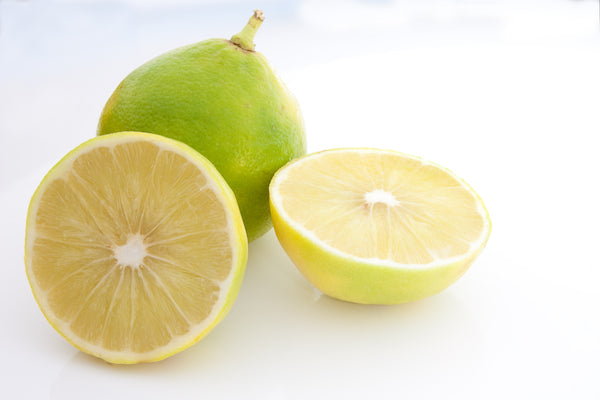
Bergamot: Cholesterol
Share
BERGAMOT: CHOLESTEROL
Bergamot (Citrus Bergamia Risso), which belongs to the Rutaceae family, Citrus genus, in addition to being used in cooking and as an essence in cosmetics, is also useful for fighting cholesterol. It is a plant a few meters tall, with a rounded crown, light green leaves and white flowers. Its origin is uncertain: some botanists have considered bergamot a "hybrid" derived from sweet lime and lemon; today the belief that it is a separate species prevails. If planted in other regions, bergamot loses the characteristics and peculiarities of Calabrian bergamot. It is known for its numerous properties , but what makes the typical citrus fruit of southern Italy very interesting is the fact that it is effective in reducing LDL cholesterol , or bad cholesterol. The effects would be on par with those of statins, the drugs used to control cholesterol. Let's see what the specific properties of bergamot against cholesterol are.

BERGAMOT: WHAT ARE ITS PROPERTIES.
Bergamot is known first of all for its use in the world of cosmetics, in fact we find bergamot essential oil in many products, such as shower gels, shampoos, creams, emulsions, perfumes and colognes. Thanks to its important antiseptic, healing, soothing and regenerating properties, bergamot oil is used for all states of skin inflammation such as acne, boils, eczema, psoriasis, seborrheic dermatitis, insect bites. It has a strong antiseptic power and if applied to the skin it has an antibacterial and disinfectant action, in cases such as acne and abscesses. It is also indicated against cystitis, leucorrhoea and other infections and irritations of the urogenital tract. Used in rinses, through gargles it fights bad breath. Bergamot is used in aromatherapy as an antidepressant and calming; it also acts on the nervous system by counteracting anxiety and inducing sleep. Bergamot has a good vitamin content, which is why it is useful in bone disorders caused by altered calcium absorption, teething disorders, collagenopathies, muscular asthenia or even neuromuscular hyperexcitability, cardiac erethism, anemia caused by reduced iron absorption, hepatobiliary congestion and various diseases with altered vascular permeability. Following a recent study (published in the scientific journal International Journal of Cardiology) by the Magna Graecia University of Catanzaro, it was demonstrated that bergamot is able to lower the levels of "bad" cholesterol while increasing those of "good" cholesterol and combat high blood sugar.
BERGAMOT: CHOLESTEROL AND JUICE
Cholesterol is the precursor of vitamin D, steroid hormones such as cortisone, androgens and estrogens. The liver transforms it into bile acids, which function as emulsifying agents during the digestion and absorption of fats. Despite this important biological role, when cholesterol circulates in the blood in concentrations higher than normal, it becomes an enemy of health. Bergamot, as we have said, is rich in substances useful for health, including the ability to control and reduce levels of bad cholesterol, or LDL. These qualities were re-emphasized by a group of researchers from the Magna Graecia University of Catanzaro, who conducted a study highlighting how a group of enzymes, HMGF (hydroxy glutaryl methyl flavonoids), can counteract the harmful action of some proteins believed to be the cause of heart disease. The researchers have demonstrated how bergamot can have effects similar to those of statins in controlling LDL cholesterol, without the side effects of the known drugs. A nice glass of bergamot juice every morning helps to keep cholesterol and triglycerides under control, obviously combining this habit with a healthy lifestyle and a correct diet.
BERGAMOT: LEARN MORE
If you want to know more about bergamot, the plant and its cultivation, recipes and how to buy our organic bergamots produced in Calabria, read here:
Bergamot Guide

